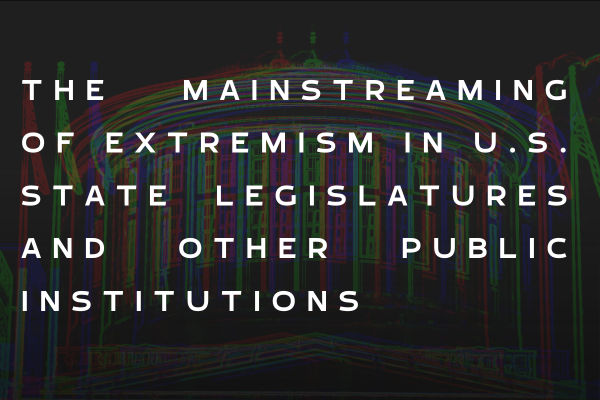
Scholars and media frequently discuss the influence of far-right extremism on US national politics, but the reshaping of state and local government and public institutions has been less studied, and is arguably still more significant. Initiatives such as legislation on culture-war issues, the redrawing of voting districts, curricular oversight, and the removal of books from libraries raise questions about how social movements and activists interact with public officials. This second Mershon Center symposium on the mainstreaming of far-right extremism considers the strategies of influence that pose threats to democratic institutions. Thirteen presentations of original research consider the growing visibility of extreme viewpoints, digital echo chambers, the role of militias, and the assimilation of far-right views into conservative politics.
